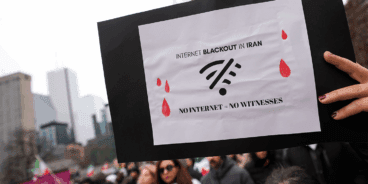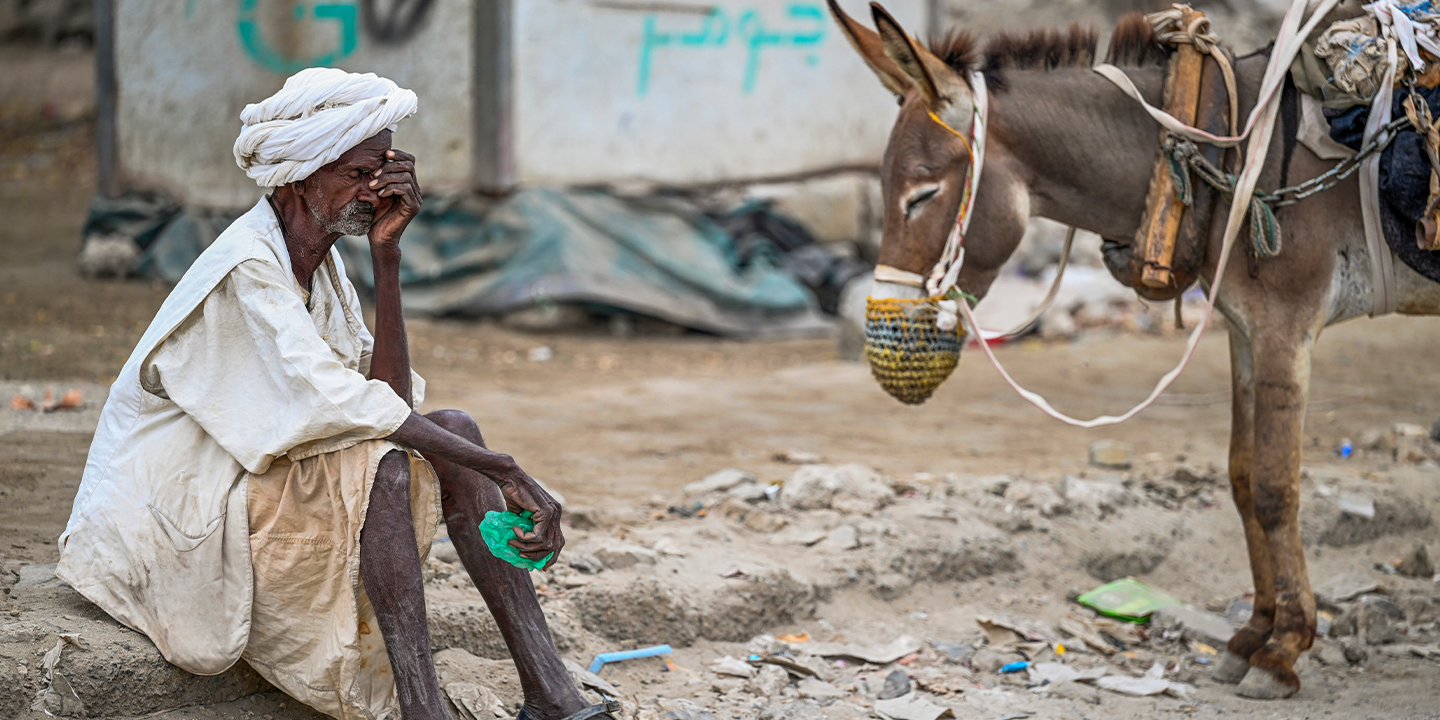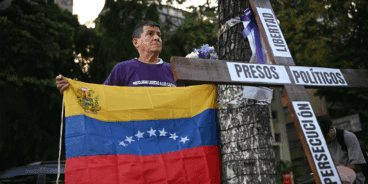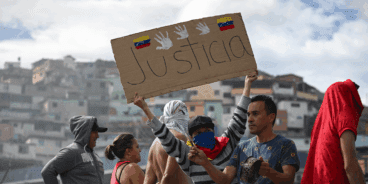

Atrocity Alert No. 443: Sudan, Israel and the Occupied Palestinian Territory and United States Travel Ban
Atrocity Alert is a weekly publication by the Global Centre for the Responsibility to Protect highlighting situations where populations are at risk of, or are enduring, mass atrocity crimes.
TARGETED ATTACKS ON HUMANITARIAN WORKERS AND FACILITIES ESCALATE IN SUDAN
On 5 June a joint humanitarian convoy operated by the World Food Programme (WFP) and the UN Children’s Fund (UNICEF) was attacked near Koma, a town in Sudan reportedly under the control of the paramilitary Rapid Support Forces (RSF), while traveling to the besieged El Fasher, North Darfur. The attack – likely carried out by drones – killed five humanitarian workers, injured several others and destroyed multiple trucks carrying critical life-saving aid. According to the UN, this convoy would have been the first to reach El Fasher in over a year. Just a week earlier, the RSF reportedly shelled WFP’s compound in El Fasher, causing severe damage to a workshop, office building and clinic.
Meanwhile, within the Abu Shouk camp for internally displaced persons – located north of El Fasher – the RSF fired artillery shelling towards the Nivasha area, killing at least 14 people, according to the camp’s Emergency Response Room. A media official in the camp reported that shelling continued the following day, killing six more people and injuring seventeen others.
These events reflect a broader pattern of both the RSF and the Sudanese Armed Forces obstructing and targeting humanitarian operations. Since the outbreak of the conflict in April 2023, aid convoys have frequently been looted, bombed or denied access. The conflict has severely deepened an already dire humanitarian crisis and at least 24.6 million people are facing acute hunger across Sudan.
The humanitarian situation in Darfur has become particularly catastrophic, with violence against civilians and infrastructure fueling widespread hunger and malnutrition, especially among children. Famine was initially confirmed in August 2024 in Zamzam camp, North Darfur, and has since expanded to nine additional locations. The ongoing siege and hostilities in and around El Fasher have left hundreds of thousands of civilians trapped without access to adequate food, water or medical care and resulted in hundreds of civilians dead and thousands injured. According to the Sudan Doctors Network, at least 179 people were killed by shelling and another 12 died from hunger in El Fasher during May. Reports also indicate that ethnically motivated and potentially genocidal violence is ongoing, particularly against the non-Arab communities, who have historically been targeted by the RSF and its allied militias.
WFP and UNICEF stated, “attacks on humanitarian staff, aid, operations, as well as civilians and civilian infrastructure in Sudan have continued for far too long with impunity.” The deliberate targeting of humanitarian workers, the indiscriminate attacks on civilian areas and the systematic obstruction of humanitarian aid may constitute war crimes and crimes against humanity.
The international community must demand an immediate cessation of hostilities in El Fasher and across Sudan to prevent further atrocity crimes and press for unhindered humanitarian access to all affected populations, including those in RSF-controlled areas. International donors must utilize more innovative ways of delivering aid, including by supporting Emergency Response Rooms and neighborhood communities.
SECURITY COUNCIL FAILS TO ADOPT RESOLUTION CALLING FOR CEASEFIRE IN GAZA
On 4 June the United States (US) once again vetoed a UN Security Council resolution calling for an immediate, unconditional and permanent ceasefire in Gaza, the release of all hostages and the full-scale resumption of aid delivery. This veto marks the fifth time the US has blocked UNSC efforts to secure a ceasefire since the start of Israel’s war on Gaza in October 2023. Notably, the 14 other Council members voted in favor of the resolution, which was co-sponsored by all 10 elected members.
The US has a long history of using its veto to protect Israel, consequently hindering the Council’s ability to address crimes committed against populations in the Occupied Palestinian Territory and speak out resolutely in defense of international law and the protection of civilians. In response to the US veto, Ambassador Asim Iftikhar Ahmad, Permanent Representative of Pakistan to the UN, warned, “Let us be clear: this failure will not go down in records as a mere procedural footnote – it will be remembered as complicity… A moment where the entire world was expecting action, but yet again, this Council was blocked and prevented by one member from carrying out its responsibility.”
Speaking to the urgent need for a ceasefire, Ambassador Eloy Alfaro De Alba, Permanent Representative of Panama to the UN, stressed that the people of Gaza are “human beings, and it is our collective responsibility to protect them.” In 2005 all states pledged to take timely and decisive action to protect populations at risk of mass atrocities. Yet twenty months into Israel’s genocide in Gaza, states with influence have bypassed this responsibility by replacing concrete action to protect Palestinians with statements of condemnation, while continuing to arm and shield Israel.
Palestinian and global civil society have taken on the responsibility neglected by states, demonstrating the urgent action needed from the international community to stop atrocity crimes. Citizens from around the world have organized, sending humanitarian vessels from Italy, deploying convoys from Tunisia and marching from Cairo to break Israel’s ongoing total siege.
All states must refrain from aiding and abetting atrocities in Gaza. States must impose comprehensive arms embargoes and targeted sanctions, suspend trade agreements and use all available economic and political measures to uphold their Responsibility to Protect. States must ensure their opposition to Israel’s ongoing and illegal siege of Gaza is accompanied by decisive action, including by participating in a diplomatic humanitarian convoy to pressure Israel to lift the siege and ensure safe delivery of aid into Gaza.
US PRESIDENT TRUMP AGAIN BANS TRAVEL FOR POPULATIONS EXPERIENCING ATROCITIES
On 9 June a new discriminatory travel ban imposed by United States (US) President Donald Trump on nationals from 12 countries – predominantly in the Middle East and Africa – as well as restricted access for citizens from seven other countries came into effect. These travel bans and restrictions largely impact individuals from places – 10 of the 19 listed countries – where populations are currently facing or have recently faced mass atrocity crimes. These policies violate the right to seek asylum and the US obligation to protect those seeking safety under international and national refugee law.
Included in the ban are nationals from Afghanistan, Eritrea, Haiti, Libya, Myanmar (Burma), Somalia, Sudan and Yemen, while partial restrictions apply to citizens of Burundi and Venezuela. Women and girls in Afghanistan are enduring gender apartheid, while communities in Sudan face war crimes and crimes against humanity – non-Arab communities in Darfur are suffering acts of genocide. Elsewhere, escalating repression amounting to crimes against humanity, as in Venezuela, and severe humanitarian crises, like in Yemen, threaten millions of lives. For victims of these crises, the travel ban further restricts pathways to safety, leaving thousands of vetted refugees in limbo.
The ban comes as the situation in Myanmar continues to devolve, with populations facing likely crimes against humanity and war crimes since the 2021 military coup. Despite a history of admitting immigrants and refugees fleeing persecution in Myanmar, including from the 2017 Rohingya genocide, the Trump administration has effectively stopped initiatives that have resettled 20,000 people in the US since the coup.
The travel ban will also deepen the suffering of Haitians, who are facing an unprecedented crisis amid deadly gang violence, record forced displacement, political instability and economic collapse. Earlier this year, the Trump administration also rescinded Haiti’s Temporary Protected Status designation – a critical lifeline shielding more than 500,000 Haitians from deportation – and revoked a program that allowed more than 200,000 Haitians to move to the US.
While every country has a right to enforce immigration and legal policies, the ban’s purported aim of protecting national security continues the racist and xenophobic policies of President Trump’s first term, when he imposed sweeping bans on admissions of citizens from seven Muslim-majority countries in January 2017, alongside halting refugee resettlement policies.
Savita Pawnday, Executive Director of the Global Centre for the Responsibility to Protect, said, “At a moment when the international community faces the largest displacement crisis on record, with children and families fleeing violence, persecution and atrocities, the need for resettlement is significant. This blanket ban vilifies communities and devastates survivors of atrocities who are simply searching for what we all deserve – a safe place to live our lives with dignity.”
Related Content


Atrocity Alert No. 464: Venezuela, Sudan and Nigeria
